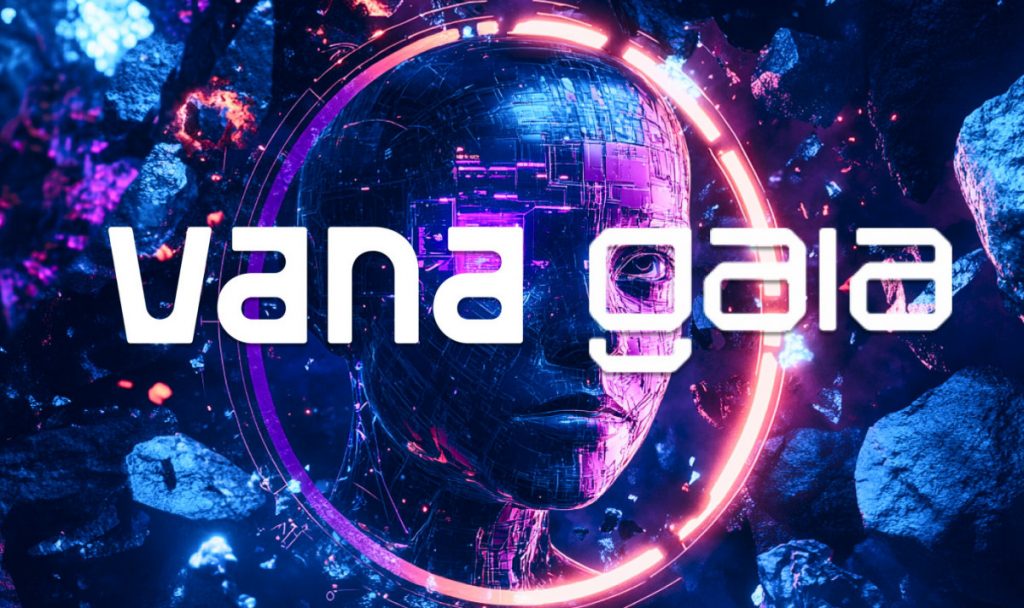Gaia and Vana Join Forces to Build a More Transparent AI Ecosystem with User-Contributed Data at Its Core


In Brief
Gaia and Vana’s partnership aims to create a diverse, egalitarian, and privacy-aware AI environment, enabling developers and users to design, manage, and profit from AI models.

The partnership between Gaia and Vana paves the way for an AI environment that is more diverse, egalitarian, and privacy-aware. This cooperation is redefining the connection between AI, data, and user ownership by enabling developers and users to design, manage, and profit from AI models using open and collaborative frameworks.
Decentralization and Open-Source Frameworks
Gaia has advocated for decentralized AI systems for a long time. With its open-source platform, developers may design and implement AI agents without being constrained by centralized control. In the past, big, centralized companies with access to enormous datasets have developed and maintained AI systems. This gives rise to concerns over data ownership, privacy, and unequal distribution of AI’s advantages.
Vana’s contribution to this collaboration enhances Gaia’s decentralization initiatives by incorporating user data in a way that upholds privacy and ownership. Users may contribute data to Vana’s distributed network, maintain control over its usage, and even make money off of it. This stands in sharp contrast to traditional approaches, where consumers’ data is frequently gathered without their knowledge or consent and utilized for uncontrollable objectives.
Providing User-Owned Data to Developers
Developers are no longer dependent on huge, centralized data sources thanks to user-contributed data. Alternatively, they can use private datasets from those who own and control the data using Vana’s network to train and implement AI agents. This creates opportunities for creating highly customized and specialized AI agents that fit the unique requirements and tastes of users.
Additionally, this method promotes the development of AI in a more moral manner. The collaboration guarantees the protection of people’s rights and privacy by empowering users to own and manage their data. In addition to being more individualized, developers may create AI models that respect user permission and data security. This lessens the possibility of personal data being exploited and misused by fostering a more open interaction between AI developers and data producers.
Converting Data into Useful AI Resources
The conversion of user-contributed data into useful digital assets is one of the most important results of the Gaia-Vana collaboration. Data is now an active and liquid asset that users can manage, control, and even profit from thanks to this partnership, rather than only being a passive resource gathered for business purposes.
These user-owned datasets may now be used to fuel AI agents created on Gaia’s platform. It gives them more intelligence as well as contextual awareness and relevance. For example, user-contributed data that is unique to each person’s situation may be used to fine-tune AI models intended to provide personalized services, like financial planning or healthcare advise. As a result, a new class of AI agents is produced that are closely linked to the user’s personal information and expertise, providing more accurate and useful insights.
A more incentive-driven AI environment, as envisioned by Gaia and Vana, is likewise compatible with the capacity to transform data into a monetizable commodity. Users may now be paid for the value their data adds to AI systems, making them active participants rather than passive providers.
Control, Ownership, and Privacy in the Development of AI
Respecting user privacy and data ownership is one of the main issues facing AI development today. Large volumes of user data are frequently collected by centralized AI systems, raising worries about data abuse, privacy violations, and a loss of control over personal data. Gaia and Vana’s collaboration tackles these problems head-on by offering a decentralized platform that gives people authority over their data.
Vana’s distributed data network gives consumers non-custodial control over their data. In this way, customers have complete control over their data, even when it is being used to train AI models. They have control over the usage, access, and monetization of their data. This method helps create sophisticated AI systems while guaranteeing that user data security and privacy are given top priority.
On the other hand, Gaia’s AI infrastructure is made to work in unison with Vana’s data governance tools, allowing for the development of AI agents that provide insightful, useful information while protecting user privacy.
Encouraging User Input into AI Networks
The Gaia-Vana alliance is based on an economic strategy that focuses on providing incentives for people to provide their data. Users frequently have little to no control over how their data is utilized in traditional AI systems, and they are not paid for the value that their data produces. Widespread worries over the morality of data collecting and the disparity in power between data suppliers and AI developers have resulted from this.
In order to allay these worries, Gaia and Vana are working to create a new, more just economic framework for AI research. Users are encouraged to provide their data under this approach by offering them direct payment or other benefits in exchange. In addition to guaranteeing that users receive just compensation for their efforts, this promotes a more cooperative approach to AI research, allowing for a wider distribution of the advantages of AI.
The foundation for a new generation of AI agents based on the values of equity, openness, and user empowerment is being laid by Gaia and Vana using this incentive-aligned paradigm. The collaboration seeks to establish a more inclusive AI ecosystem that benefits all players, not just a chosen few, by enabling users to take an active role in AI networks.
Building a Developer-Centric Future
In addition to empowering consumers, the Gaia-Vana alliance aims to enable developers to create the upcoming wave of AI apps. Gaia and Vana are enabling developers to construct more intelligent, context-aware, and customized AI agents by making user-contributed data accessible.
The modular and adaptable architecture of Gaia’s decentralized AI platform enables developers to create unique AI solutions that can easily interface with a variety of data sources and knowledge bases. Developers may access user-owned datasets that are customized for certain use cases thanks to Vana’s distributed data network, which offers an additional degree of customization.
Gaia and Vana are also funding other community projects to help developers create these new AI applications. This includes developer gatherings, virtual hackathons, and instructional materials meant to provide developers with practical experience with the merged technology. Gaia and Vana want to promote the use of decentralized AI and establish a flourishing ecosystem of AI-powered apps that benefit consumers and developers alike by cultivating a worldwide community of AI developers.
Disclaimer
In line with the Trust Project guidelines, please note that the information provided on this page is not intended to be and should not be interpreted as legal, tax, investment, financial, or any other form of advice. It is important to only invest what you can afford to lose and to seek independent financial advice if you have any doubts. For further information, we suggest referring to the terms and conditions as well as the help and support pages provided by the issuer or advertiser. MetaversePost is committed to accurate, unbiased reporting, but market conditions are subject to change without notice.
About The Author
Victoria is a writer on a variety of technology topics including Web3.0, AI and cryptocurrencies. Her extensive experience allows her to write insightful articles for the wider audience.
More articles

Victoria is a writer on a variety of technology topics including Web3.0, AI and cryptocurrencies. Her extensive experience allows her to write insightful articles for the wider audience.


















































